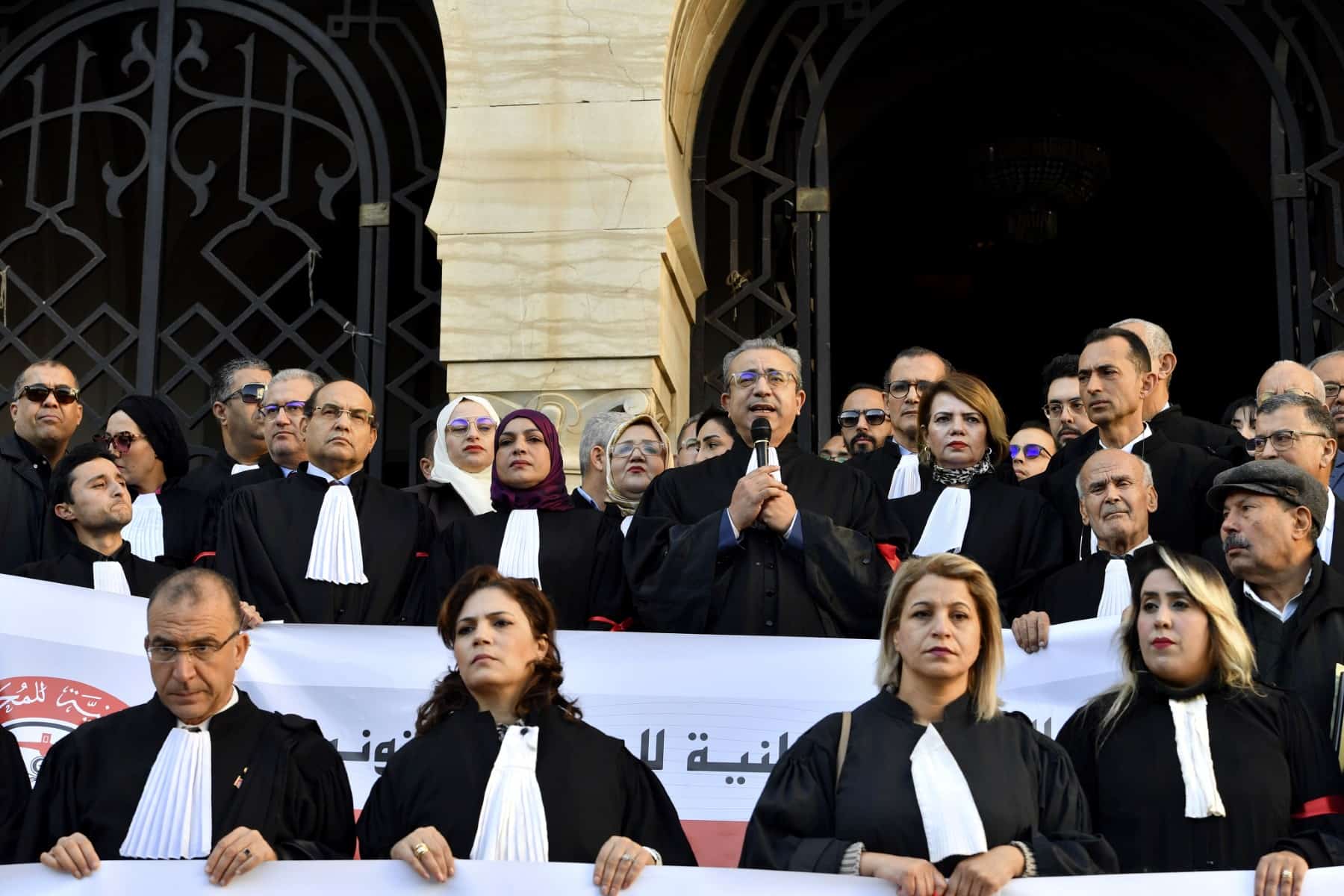Tunis, Tunisia – Dozens of Tunisian lawyers protested on Thursday against newly imposed taxes on legal services, part of a 2023 budget that seeks to boost revenues to the cash-strapped treasury.
Led by Bar Association head Hatem Mziou, lawyers gathered outside the Palais de Justice in Tunis as well as other sites, after the association called for a “day of rage”.
The budget, unveiled last week, imposes new taxes to claw the North African country’s deficit back to near five percent of GDP, as it awaits an international bailout.
Among the measures are a hike in taxes on legal fees, from 13 to 19 percent.
The Bar Association says its 9,200 members will only be liable for the new, higher rate when it is actually paid — along with their fees — by their clients.
It has also pointed out that the tax will hit legal service users from disadvantaged backgrounds hardest.
Mziou said in a speech that the new law “will help make citizens even poorer”.
He also said Tunisian lawyers “will not stay idle in the face of attacks on rights and liberties”.
He cited a controversial September decree by President Kais Saied which provides for jail terms against people found guilty of spreading false rumours “in order to undermine public security”.
A lawyer who is defending a group of judges sacked by Saied said earlier this week that he is facing investigation under the law.
Saied in July 2021 launched a dramatic power grab, sacking the government and freezing parliament, later moving to seize control of the judiciary and pushing through a custom-made constitution cementing his grip on the executive.
His moves have come with Tunisia mired in an economic crisis that has caused repeated shortages of essential goods as well as spiralling inflation.
On Wednesday evening, Saied told Interior Minister Taoufik Charfeddine that “freedom doesn’t mean chaos and plotting against the state”, according to a statement from Saied’s office.
Without naming anyone, he accused “certain people supported by known lobbies” of “violating the law and undermining national security”.








